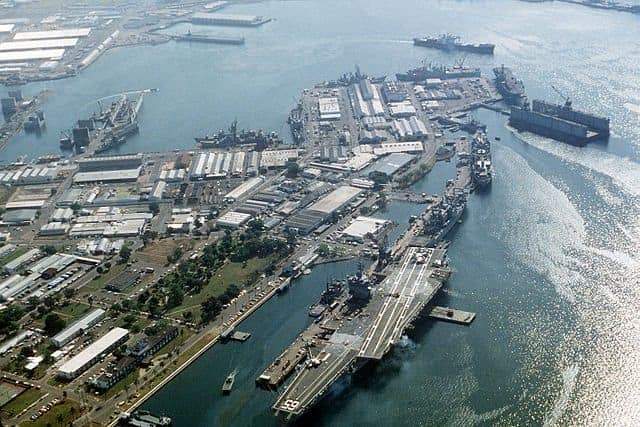Philippines Freezes Pull-Out From Visiting U.S. Forces Agreement

The Philippine government is putting the brakes on its plan to end a critical aspect of its Mutual Defense Treaty with the U.S., but experts say it is too soon to tell whether this decision signals a warming relationship between the two allies.
On June 1, the government of the Philippines notified the U.S. Embassy in Manila that it froze a February decision to withdraw from the Philippines-United States Visiting Forces Agreement (VFA). The agreement between the two countries eases the ability for the U.S. to send military forces to the Philippines and supports the Mutual Defense Treaty the U.S. and Philippine governments signed in 1951.
The U.S. embassy in Manilla released a statement last week saying, “The United States welcomes the Philippine government’s decision. Our long-standing alliance has benefited both countries, and we look forward to continued close security and defense cooperation with the Philippines.”
However, regional analysts warn not to assume that Philippine President Rodrigo Duterte is signaling a desire to return to the way things were. More than likely, a couple of realizations occurred inside Duterte’s inner circle, John Schaus, a fellow with the International Security Program at the Center for Strategic and International Studies (CSIS), told USNI News on Monday.
Without the VFA or something like it, Schaus said it is much more difficult for the U.S. and the Philippines to cooperate in defending Philippine interests.
“The U.S. just can’t operate and engage very effectively if every single movement has to be approved,” Schaus said. “I think there was a realization that probably would be really bad for the Philippines, particularly as it’s sorting out its territorial disputes with the Chinese.”
Duterte first announced an end to the VFA because he was not happy the U.S. government revoked the visa for one of his political allies in the Philippine government.
Aside from the visa issue, Schaus suspects the Philippine leadership has other concerns about how their relationship with the U.S. is working. The U.S. runs a steady pace of freedom of navigation operations in the South China Sea, for instance, but these operations do not stop Chinese expansion in the region, Schaus said.
“A FONOP operation is great, but it’s not a deterrent,” Schaus said. “It’s a legal argument with a warship because you’re registering opposition to an excessive claim.”
Part of the friction between the U.S. and the Philippines, Schaus said, is caused by both sides not clearly stating their priorities for the region. The Philippine leadership is freezing their exit from the VFA to buy more time to negotiate an updated deal, Schaus said.
Overall, the U.S. presence in the Philippines is small. As of March, the Pentagon reported that 196 active-duty military personnel and a dozen civilian DoD employees were permanently stationed in the Philippines. U.S. military special operators are working with the Philippine military to fight against Islamic State-affiliated insurgents in the southern islands. Many of the 164 Marines in the Philippines serve as embassy guards. The Navy reported 10 active-duty and nine civilian personnel stationed in the Philippines.
For nearly a century, the U.S. military had a steady presence in the Philippines. The U.S. Navy and Air Force maintained two large bases – Naval Station Subic Bay and Clark Air Base – near the volcano Mount Pinatubo. Both bases were severely damaged when Mount Pinatubo erupted on June 15, 1991.
Disputes over the cost of rebuilding the bases contributed to the U.S. dramatically reducing its military footprint in the Philippines, Schaus said. The VFA was signed in 1998 to cut out the amount of red tape required for U.S. forces to travel to the Philippines.
Without the VFA or something like it, Schaus said it would be a lot harder for the Mutual Defense Agreement to be put into practice. Each specific troop movement would need to be approved independently. It’s unclear what happened with the visa, but perhaps the tactical issues concerns are providing a path for the Filippino leadership to quietly reassess operations without a VFA.
“In hindsight, you could say was this a tactical response to a tactical decision, slash miscommunication? Was the visa really canceled, was it canceled on purpose? Was it a clerical error? I’ve seen lots of different sides of that story,” Schaus said. “But Duterte often responds forcefully to things, and this was a forceful response. Whether it represents a strategic shift, I think we’re seeing the Philippines say ‘let’s wait a minute, let’s think about this and see if that really is a strategic benefit for us to end the Visiting Forces Agreement.”
Photo: USS Enterprise (CVN-65) at Subic Bay in 1993. US Navy Photo
Link: https://news.usni.org/2020/06/08/philippines-freezes-pull-out-from-visiting-u-s-forces-agreement











